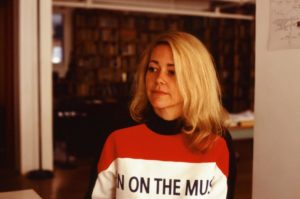
Q & A: Guadalupe Paz & Alfredo Daza in ‘El último sueño de Frida y Diego’
By Jennifer PyronSan Diego Opera presents the world premiere of “El último sueño de Frida y Diego / The Last Dream of Frida and Diego” on October 29, 2022, by Grammy Award-winning composer Gabriela Lena Frank and Pulitzer Prize-winning librettist Nilo Cruz.
The show features mezzo-soprano Guadalupe Paz in the lead role as iconic painter Frida Kahlo and baritone Alfredo Daza as Frida’s husband, the legendary muralist Diego Rivera.
OperaWire visited with both during rehearsals to learn more about their process in celebration of this exciting debut, which also has performances scheduled in the Spring of 2023 at San Francisco Opera.
OW: What would you like our readers to know about your role as Frida Kahlo?
Guadalupe Paz: I was born in Mexico and have lived in San Diego for over ten years. I am honored to be a part of San Diego Opera’s production of “El último sueño de Frida y Diego.” Having my roots in Mexico, Frida resonates a lot with me. She is an icon. I identify with her as a woman and as an artist. She used her brush while painting to express emotions, similar to how I use my voice to express my emotions and communicate with the audience.
This opera is fantasy based. It is inspired by Frida and Diego’s love life and how she is pressured by Maria Katzarava’s role, La Catrina—a fantastical character representing death—that influences their bond. The colors and surroundings of this Mexican culture-based fantasy are exquisite. I think audience members will really love this aspect.
OW: How does composer Gabriela Lena’s music tell the story of Frida?
GP: This is the first time I am singing a composition by Gabriela Lena. She is brilliant. She surrounds you with rich and colorful sounds in the orchestra. There is also a marimba in the orchestra that brings to life Mexican culture. And while she is a master of her craft, Gabriela Lena is also very humble. She composes for the singers and cares very much about my voice and ideas.
It is a privilege to work with a composer in this way, especially with her. It is like she is making a special recipe for my voice. She also loves to surprise listeners through rhythms and harmonies that involve different instruments. The dramatic passages already give me goosebumps! There is something very magical happening with the development of this opera. I am honored and privileged to be in this role and to be experiencing all of this firsthand.
OW: Are there moments where you feel most able to immerse yourself in the role of Diego?
Alfredo Daza: I am discovering this opera is not based on the real lives of Diego and Frida, and I am learning what I tell in this role every time I practice the music. This is a process of discovery for me in this way. This is the story of a complicated love relationship between two people having a near-death encounter.
There are certain moments where I imagine, like at the beginning of the opera, where Diego tried to be very charming around others. He wanted to be seen and heard by all, but I felt he was also very introspective. Diego was a hero. One of the most sought and famous figures in Mexico. He was the essence of picardia. This was his way of being. He also had a way of standing very straight, and his posture was perfect. He carried himself as a very strong man, but I am learning through this music how he fades away inside, having lived his full legacy in his lifetime. It is as though his energy slowly leaves him. There is a point where his work is done. And this is part of the fantasy.
OW: How are your rehearsals going, and what are you learning most while realizing this new project?
GP: I am learning to feel the syncopations of Gabriela Lena’s composition organically and, especially as a singer, be more mindful of tempi. I am becoming more flexible with alternating between a binary tempo of triplets and syncopations. I love challenges, and this has been my favorite challenge: learning more about my craft and voice. I find myself fascinated by ideas while learning this music. As a singer, I am more often singing legato, but with this work, I must be careful not to miss a beat.
AD: Rehearsals are going well, and there are always new things to learn when working with contemporary music. I normally perform traditional Italian repertoire, and Gabriela Lena’s music is more rhythmic. For example, my opening begins with a piece that alternates between counts of two and three. I am memorizing how to feel this alternating and letting my voice naturally remember this so I can focus more on my emotions.
I am also learning how to elongate my vowels at the end of my lines because, for example, Verdi believed in short vowels at the end of a line. But, I understand this is to emphasize emotions in this way, so I am learning to do this. Gabriela Lena writes beautiful music for the ear that is not complicated. I feel listeners will enjoy this very much.
OW: Is there an exercise you’ve learned while memorizing the work that assists you most with creating a healthy connection between your voice and body? How do you work through passages that require your voice to be percussive while staying connected to your vocal line?
GP: This is something I have been learning more about since the beginning of this role. How to sing angular writing requires me to look at the vocal line in a different way. I constantly ask myself how to make this vertical line more horizontal through my voice. Is there a way to create a line of energy that carries my voice through this passage? I sing a lot of Rossini, Händel, and other bel canto works, so I am reimagining how I can bring my classical technique forward in a new way.
When I pay too much attention to the rhythm, I lose my connection to my voice. I feel more comfortable and confident in my work when I create lines through the passages. I am more aware. Then, I ask questions like, where does Gabriela Lena want to go with this passage? How do I create this bridge to get to where she wants to go through my voice? This is the best way forward, I feel.
AD: I feel that what we do as opera singers is what the music tells us. I exercise listening and singing as a way of being surprised at first, so I do not get ahead of myself in any way. I plan where I need to, but I enjoy being in the moment so that my reactions are natural and honest. I imagine throwing myself into the canvas of Diego Rivera’s life, work, and way of being.
OW: What is the core of your mission during your performance? Is there a characteristic or quality about Frida that you have connected with?
GP: Some characteristics that I have learned from Frida and embody for this role are her courage, her bravery, her love for the arts, and her love for her roots as a Mexican. Nilo Cruz and Gabriela Lena have done excellent work together, so I see how I can portray Frida’s essence based on the music. This opera is a beautiful and organic embroidery that combines balanced and poetic.
Frida is also a bit mischievous and makes jokes that bring her personality to life. I enjoy portraying her as happy and fun in this way. Even though she was petite and suffered a lot in her life, Frida was eager to live her life to its fullest. I want to portray her internal strength and connect the audience with how she overcame hardships. She never wanted to be a victim, which is important for me to highlight through this role.
OW: Is there a quality you connect with most in your role as Diego?
AD: Yes, I connect well with how Diego worked and physically represented himself as a strong person. He had tremendous strength, and I feel I am learning how to express this through my voice in this role and in a new way. He was such a powerful presence. For example, he never did anything small. When he painted, he PAINTED. His charm and strength took him very far in his life.
OW: What will audience members take away from this opera?
GP: I want to invite everyone to come to see this opera. It is like traveling back to Mexico in the 1940s and 1950s. There is so much beauty and culture wrapped up in magical moments with the music and the stage. The music’s rhythms and colors are for everyone to enjoy. I am so happy to be a part of this and be responsible for Frida’s role. I am very grateful to all.
AD: I am very lucky to be doing what I am doing. I think audience members will feel my dedication to this role. This is my 56th role, and the part is very special to me. I think vocally free. Whereas I normally perform Verdi, this new opera is refreshing for me. I am very excited! I also dedicate my life to music and my family, and if someone connects with my work in this way while hearing me sing this music, then this is wonderful because I sing for them too.



